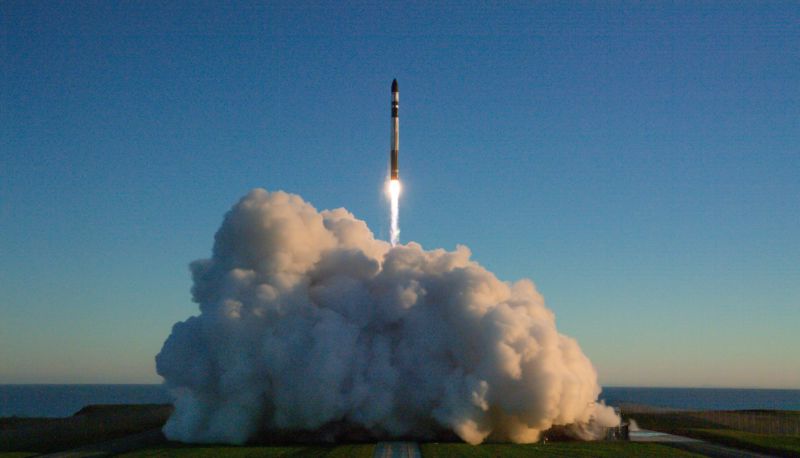Lunar Prize –
“We’ll be bringing previously impossible missions within reach at attainable prices.”

Enlarge/The “Make It Rain” mission launches in June 2019 from Rocket Lab’s spaceport in New Zealand.
Rocket Lab
Rocket Lab has successfully begun to transform into an operational launch company this year, with five successful Electron missions in 2019 and the promise of a couple more before the year ends. In accomplishing this, it has become the world’s first private company to develop a low-cost rocket for small satellites.
Moreover, it continues to set performance milestones. With its “As the Crow Flies” mission earlier this month, Rocket Lab set a new altitude record for the company by sending a 20 kg payload to a 1, 200 km circular orbit. But now, the US-based company that launches primarily from New Zealand has set its sights much, much higher.
On Monday, Rocket Lab announced that with its “Photon” upper stage it will be able to send small payloads all the way to lunar orbit. “Small satellites will play a crucial role in science and exploration, as well as providing communications and navigation infrastructure to support returning humans to the Moon,” Peter Beck, the company’s chief executive, said in a news release. ” as pathfinders to retire risk and lay down infrastructure for future missions. “
-
A Rocket Lab employee works on the Photon spacecraft bus.
Rocket Lab
-
The Photon vehicle is shown in the foreground, with the Electron rocket’s second stage in the background.
Rocket Lab
-
A closer view.
Rocket Lab
-
A head-on view.
Rocket Lab
-
Don’t forget to remove that.
Rocket Lab
A Rocket Lab spokesperson told Ars that the new service, launching on an Electron rocket, would be capable of sending up to 30 kg into lunar orbit and be available as soon as the fourth quarter of 2020. As for pricing, it was not disclosed. “Pricing is tailored to mission requirements, but we’ll be bringing previously impossible missions within reach at attainable prices,” the spokesperson said.
The “Photon” spacecraft is essentially a small third stage for the Electron rocket that provides in-space maneuvering capability for payloads. It combines propulsion, power, attitude determination and control, and radiation-tolerant avionics. These combined capabilities will allow Rocket Lab to deliver small spacecraft on lunar flyby missions, into a Near Rectilinear Halo Orbit (where NASA intends to build a small space station called the Lunar Gateway), L1 / L2 points, or lunar orbit. It will take up to 14 days for the Photon vehicle to deliver a payload to lunar orbit.
After proving out its basic Electron rocket, which has a capacity of 200 kg to Sun-synchronous orbit, Rocket Lab has sought to iterate on its design over the last year and a half. It has since developed a kick stage and has also begunworking on technologyto recover Electron boosters and fly them multiple times. Now it is improving the Photon spacecraft.
The company’s announcement comes as NASA and international partners are looking to increase activity both in orbit around the Moon and on the surface. With this offering, Rocket Lab could play a significant role in testing CubeSat technology for science and exploration purposes in the lunar environment.






GIPHY App Key not set. Please check settings